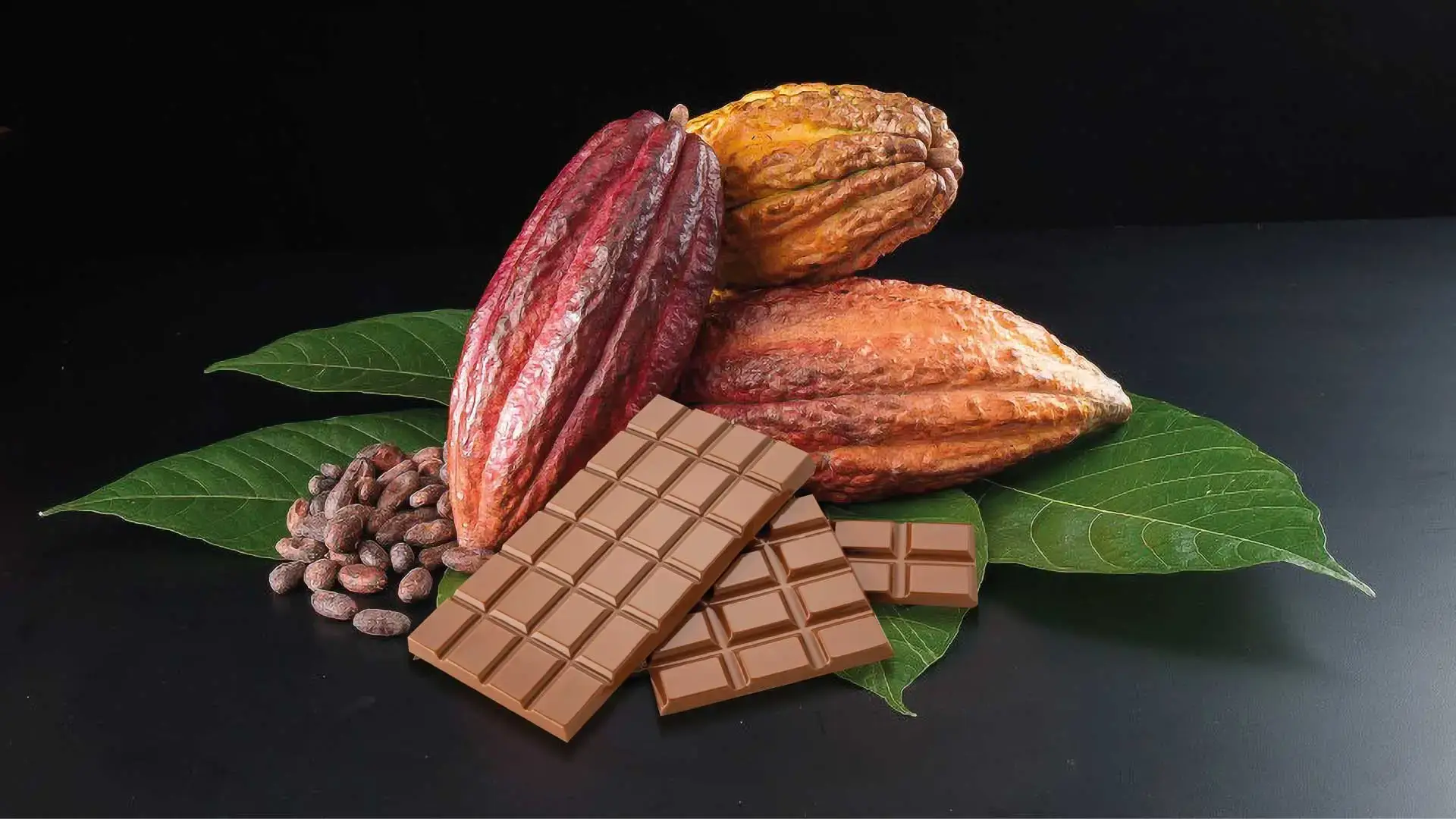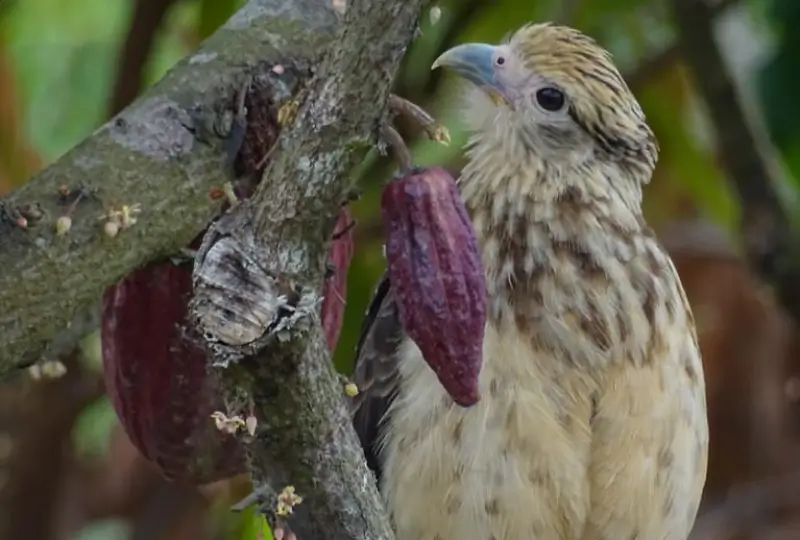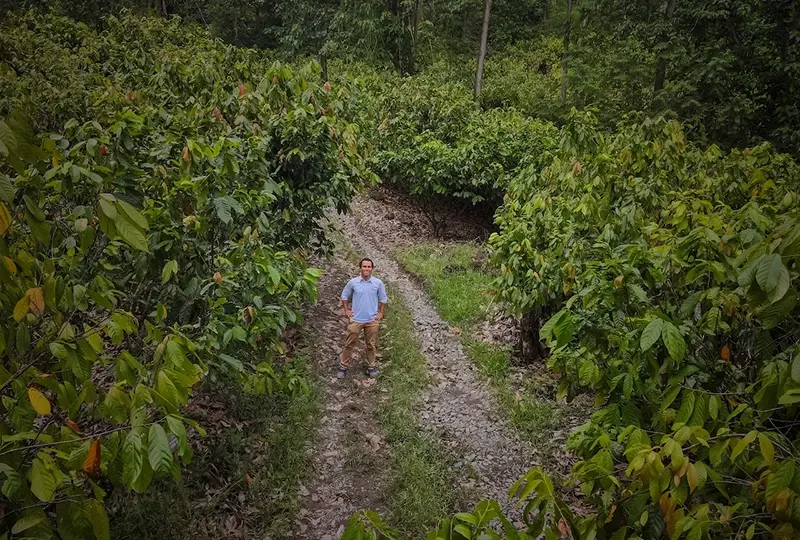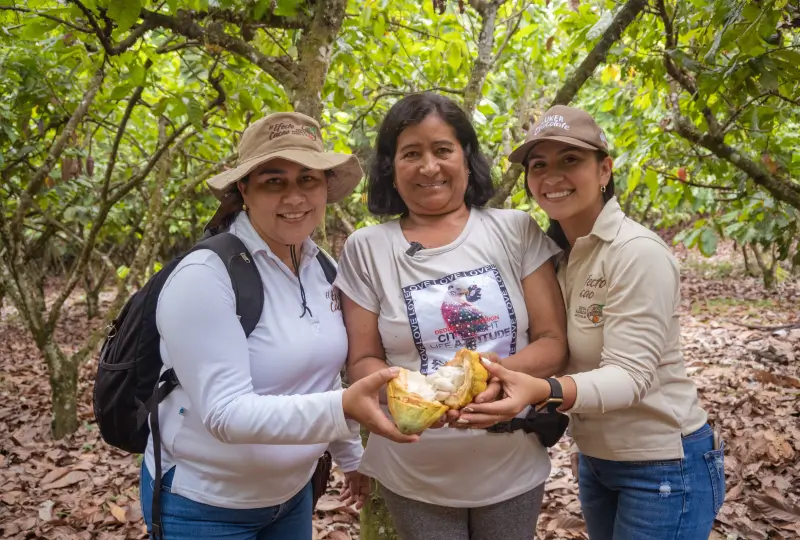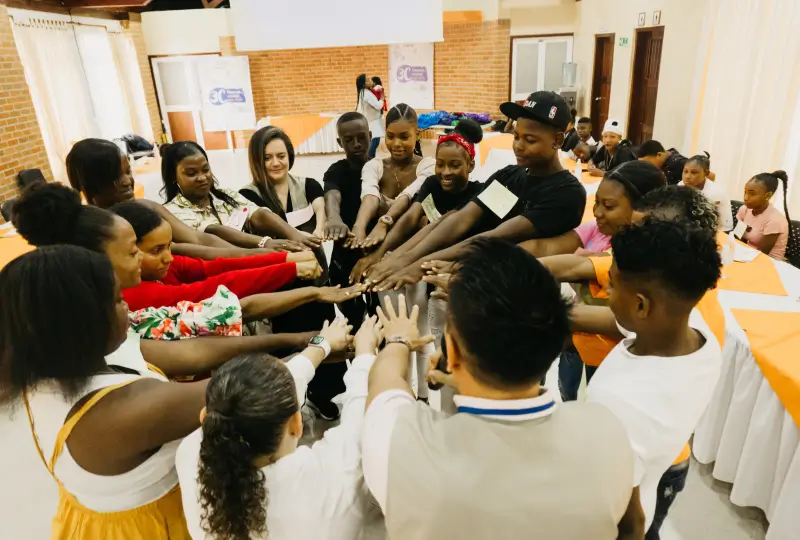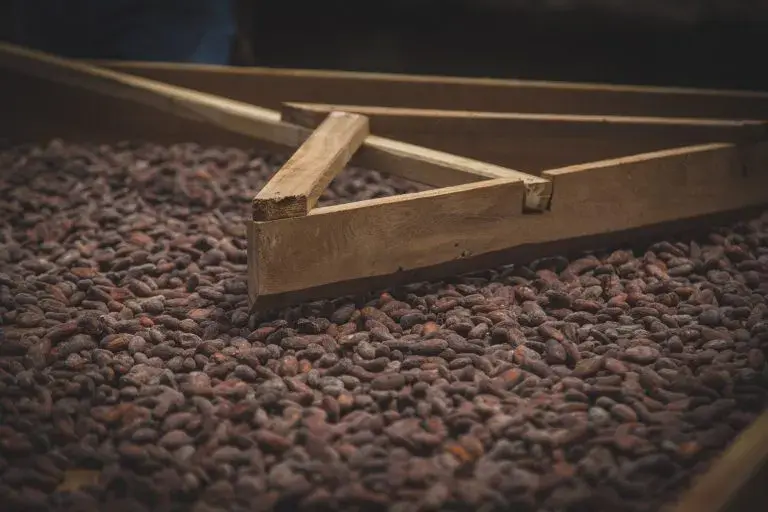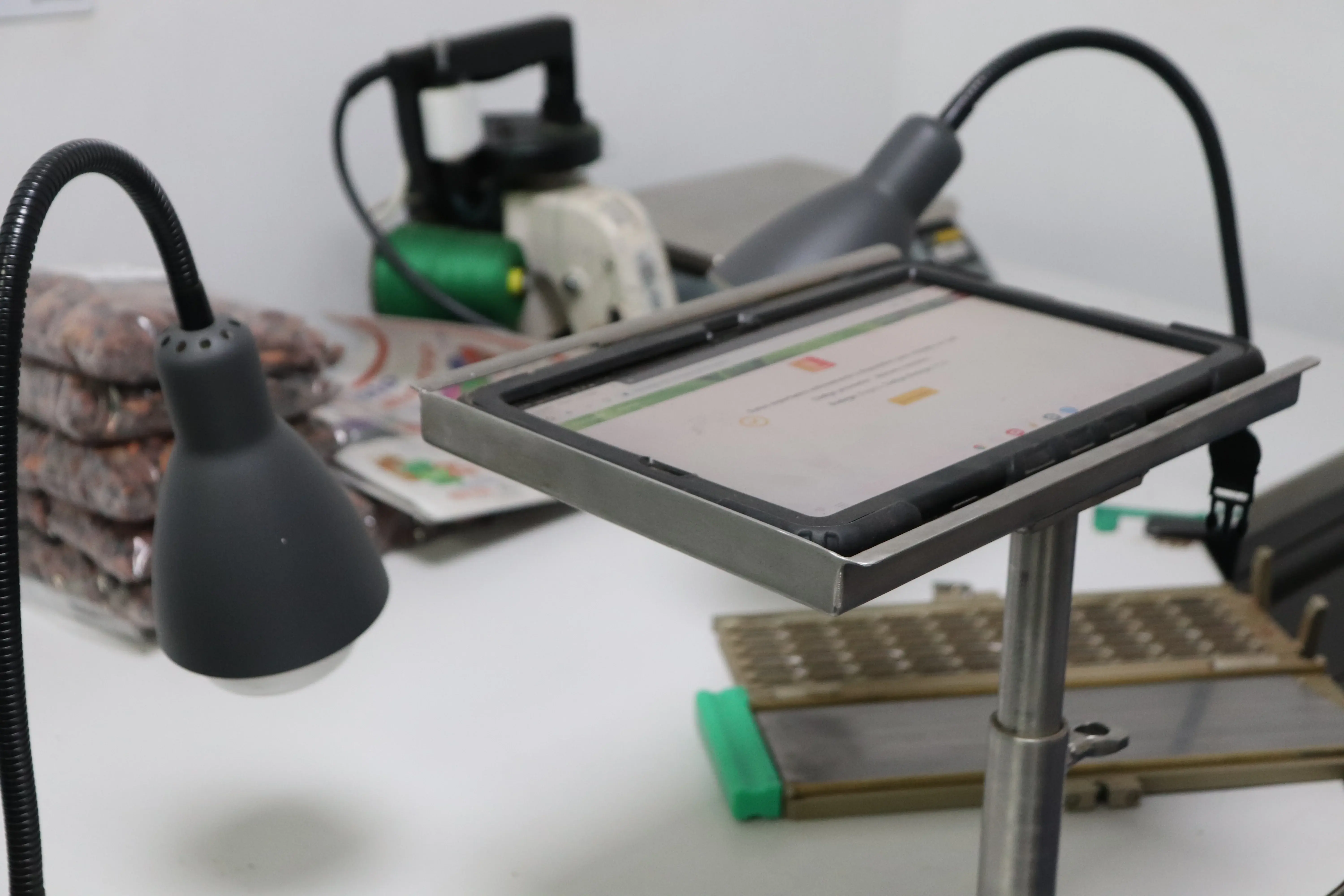| Updated and republished on 19th March, 2025 |
| This blog was originally posted on 25th January 2022 By Sergio Restrepo - VP of Innovation and has been updated for clarity, relevance, and accuracy. |
A reliable and high-quality cocoa supply for chocolate manufacturers and brands isn’t just about great taste—it’s the foundation of your product’s success. Yet, today’s cocoa farming faces unprecedented challenges that put supply consistency, costs, and sustainability commitments at risk.
Extreme weather events, an ageing farming population, and increasing regulatory demands reshape the industry. Left unaddressed, these issues could lead to higher volatility in pricing, reduced availability of high-quality cocoa, and growing concerns from consumers and stakeholders.
But innovation is changing that reality. At Granja Luker, we’ve been at the forefront of cocoa research since 1963, pioneering scientific and technological advancements to ensure cocoa farming remains productive, resilient, and sustainable. Through precision agriculture, biodiversity research, and smart farming technologies, we’re working side by side with farmers to increase yields, reduce environmental impact, and secure long-term sourcing stability for chocolate brands like yours.
Navigate the menu or keep on reading to explore:
These insights will help you understand how innovation shapes cocoa farming, ensuring a sustainable industry and a stable and high-performing supply chain for your chocolate products.
What Needs to Change in Cocoa Farming?
Cocoa farming is at a turning point. As demand for high-quality chocolate continues to grow, so do the pressures on the cocoa supply. Climate change, shifting demographics, and environmental challenges make it harder to maintain stable production, putting long-term sourcing at risk for chocolate brands and manufacturers.

Understanding these challenges isn’t just about the future of cocoa farming; it’s about ensuring a consistent, sustainable supply of chocolate ingredients. Addressing them means securing stable formulations, predictable costs, and meeting consumer expectations for ethical and environmentally responsible products.
Here are the key obstacles shaping the future of cocoa farming:
1. Aging Farming Populations & Labour Shortages
Younger generations are leaving rural areas for urban opportunities, leaving cocoa farms with an ageing workforce. With fewer farmers, maintaining production levels and knowledge transfer becomes increasingly tricky.
2. Climate Change & Unpredictable Weather
Cocoa is highly sensitive to temperature shifts, rainfall inconsistencies, and extreme weather events. Longer dry seasons, increased flooding, and higher temperatures disrupt flowering cycles and reduce yields. Climate stress also intensifies pest and disease pressures, leading to higher crop losses.
3. Low Yields & High Pod Mortality
Cocoa trees naturally lose a significant percentage of their pods before they reach maturity—sometimes as much as 90%. This limits overall production potential and makes it difficult to meet increasing global demand.
4. Environmental Pressures & Land Use
Deforestation and unsustainable farming practices degrade soil health and biodiversity. While agroforestry offers a solution, implementing sustainable farming at a larger scale remains a challenge.
5. Market Volatility & Farmer Livelihoods
Economic instability in cocoa-producing regions means many farmers lack access to resources, training, and financial stability. Without improved productivity and resilience strategies, cocoa farming becomes less viable.
Each of these challenges directly impacts the stability and reliability of cocoa supply chains. However, solutions that can reshape the future of cocoa farming are emerging through agricultural research, technological innovation, and more sustainable practices.
Scientific Innovation in Cocoa: Transforming Agriculture Through Research

Meeting the chocolate industry's future demands calls for data-driven, scientifically backed solutions that enhance productivity, sustainability, and resilience. Cocoa farming has long relied on experience-based practices, but today, research is unlocking new ways to improve yields, reduce losses, and secure consistent sourcing for chocolate manufacturers.
At Granja Luker, where cocoa research has been a cornerstone since 1963, we’re testing and developing innovative agricultural practices that address cocoa’s biggest challenges. Through advanced agronomic studies, technology integration, and farmer-led research trials, we’re driving change in three key areas:
1. Increasing Productivity Without Expanding Land Use
Rather than expanding into new farmland, scientific research is helping farmers grow more cocoa per hectare by improving soil health, optimising nutrient levels, and refining tree architecture. Trials show that strategic pruning and high-density planting can increase tree efficiency, leading to higher yields from the same land.
2. Reducing Cocoa Pod Mortality
One of cocoa’s biggest challenges is the natural loss of pods before they reach maturity. By leveraging machine learning and environmental data, research is pinpointing why some pods survive while others don’t—allowing for targeted interventions that could significantly improve harvest rates.
📌 "If we can reduce pod losses from 90% to even 70%, it would have a massive impact on total production. That’s what our research is working towards." – Juan José, Agricultural Research Lead at Granja Luker.
3. Strengthening Cocoa’s Resilience Against Climate Change
Cocoa farming must adapt to shifting weather patterns, unpredictable rainfall, and increasing temperatures. Research into agroforestry, regenerative agriculture, and soil microbiology is helping farmers build climate-resilient systems that maintain productivity even under environmental stress.
Scientific research in cocoa isn’t just about the farms—it directly benefits the entire chocolate supply chain. These innovations help manufacturers maintain consistent quality, pricing, and sustainability commitments by ensuring a more stable, predictable cocoa supply.
Watch how we have enabled opportunities for cocoa farmers with our long-term vision:
Maximising Yield & Improving Crop Survival
For chocolate manufacturers, a steady supply of high-quality cocoa is essential. However, one of the biggest challenges in cocoa farming is low yield efficiency—with as much as 80–90% of fertilised pods failing to reach maturity. Increasing productivity isn’t just about planting more trees; it’s about optimising the survival of each cocoa pod, reducing losses, and making farming more efficient.
At Granja Luker, research drives new strategies to maximise cocoa yield while maintaining sustainability. By leveraging machine learning, nutrient management trials, and advanced field monitoring, we are identifying key factors that influence pod survival and overall farm productivity.
1. Why Do Cocoa Pods Fail to Reach Maturity?
Through detailed research, we’ve identified several key reasons why cocoa pods abort before ripening:
- Nutrient Deficiencies – Unbalanced nitrogen, potassium, and phosphorus levels can lead to high pod mortality.
- Poor Pollination: If a pod isn’t properly pollinated, it struggles to develop and is often aborted by the tree.
- Environmental Stress – Fluctuations in temperature, soil moisture, and sunlight exposure impact pod retention.
- Competition for Resources – When trees carry too many pods, they selectively drop weaker ones to conserve energy.
2. Applying Machine Learning for Cocoa Survival Predictions
At Granja Luker, we’ve been using AI-driven analysis to understand pod mortality better. By tracking over 60,000 images of cocoa pods across different growth stages and analysing 157 environmental and agronomic variables, we can predict with 90% confidence whether a pod will survive or die.

📌 "We trained an AI model with thousands of cocoa pod images. Now, we can predict survival rates with remarkable accuracy, allowing farmers to act before losses occur." – Juan José, Agricultural Research Lead at Granja Luker.
This technology allows for targeted interventions, helping farmers:
✅ Adjust nutrient and irrigation levels to support struggling pods.
✅ Identify trees with high loss rates and apply corrective measures.
✅ Improve overall yield efficiency without increasing land use.
3. Optimising Nutrient Management for Higher Yields
Nutrient balance is a significant factor in cocoa productivity. Our research has revealed that pod survival rates increase when trees receive optimal levels of potassium and phosphorus. In contrast, excessive nitrogen can sometimes lead to higher mortality.
What we’re testing:
- Custom fertilisation strategies based on real-time soil and leaf nutrient analysis.
- Precision composting techniques to create natural, nutrient-rich soil amendments.
- Regenerative farming models that improve soil structure, reducing reliance on chemical inputs.
By fine-tuning fertilisation, we aim to help farmers reduce input costs while maximising the number of pods that reach full maturity. This will ultimately create a more stable cocoa supply for manufacturers and brands.
The Role of Pollination: New Approaches for Higher Yields
Pollination is the foundation of cocoa production, yet it remains one of the most significant limiting factors in yield efficiency. Unlike many other crops, cocoa trees rely on tiny insects—mainly midges—to transfer pollen between flowers. However, natural pollination rates are shockingly low, with only 10–20% of fertilised flowers developing into mature pods.
For manufacturers and brands, low pollination efficiency directly impacts supply stability. The more effective the pollination process, the higher the yields, without requiring additional land or intensive inputs.
1. Understanding the Challenges of Cocoa Pollination
- Low Natural Pollination Rates – Cocoa flowers are delicate and only remain viable for 24 hours. If pollination doesn’t happen in that window, the flower is lost.
- Declining Pollinator Populations – Environmental changes, habitat loss, and pesticide use have affected natural pollinator populations.
- Pollination Efficiency Varies by Region and Variety—Some cocoa varieties attract more pollinators than others, and environmental conditions also play a role.
2. Exploring Alternative Pollinators & Agroecological Practices
At Granja Luker, we’re rethinking cocoa pollination by studying alternative pollinators beyond traditional midges. Recent studies suggest that native stingless bees and other small insects may also contribute to the pollination process.
📌 "We’re studying native stingless bees to see if they can improve cocoa pollination rates. If successful, this could be a game-changer for cocoa productivity." – Juan José, Agricultural Research Lead at Granja Luker.

What we’re researching:
🐝 Encouraging bee-friendly environments by integrating diverse flowering plants to attract and sustain pollinator populations.
🌿 Agroforestry techniques that support biodiversity, providing habitat for natural pollinators.
🤖 Testing hand-pollination techniques as a scalable alternative for farms experiencing low natural pollination rates.
3. The Potential of Stingless Bee Colonies in Cocoa Farming
One of our most exciting research areas is the potential of native stingless bees as pollination enhancers. These bees are:
✅ Non-aggressive and easy to manage, making them ideal for farm integration.
✅ Active throughout the day, increasing the chances of successful pollination.
✅ Capable of boosting cocoa productivity if their pollination role is confirmed.
Our research focuses on quantifying these bees' impact on cocoa pod development and survival rates. If successful, this approach could provide a natural, low-cost way to enhance cocoa yields while promoting biodiversity.
4. Testing Scalable Pollination Interventions
Hand-pollination techniques, which involve manually transferring pollen between flowers to increase fertilisation rates, are also being explored for farms with extremely low pollination rates. While labour-intensive, this could be a viable solution for high-value cocoa varieties where yield consistency is crucial.
|
By improving pollination rates, we can significantly increase cocoa yields without expanding farmland, which is a win for farmers, manufacturers, and sustainability. But the future of cocoa isn’t just about better pollination. The next step is integrating innovative technology and data-driven precision farming to take cocoa cultivation even further. |
Precision Farming & Data-Driven Decision-Making: The Next Big Leap
Traditional cocoa farming has relied heavily on experience and intuition, with farmers making decisions based on generational knowledge rather than precise data. But with advances in precision agriculture, satellite monitoring, and AI-driven analytics, cocoa farming is evolving into a data-driven ecosystem—optimising productivity while ensuring long-term sustainability.
At Granja Luker, we integrate cutting-edge technologies to refine yield prediction, resource management, and environmental monitoring, making cocoa farming more efficient, predictable, and resilient.

1. Harnessing AI & Machine Learning for Cocoa Yield Prediction
Cocoa trees follow complex growth cycles, with high pod mortality rates making yield predictions difficult. By combining AI-powered image analysis with real-time farm data, we are uncovering patterns in pod development that allow us to predict survival rates with 90% accuracy.
✅ 60,000 pod images were analysed to detect growth patterns and mortality risks.
✅ 157 environmental variables tracked, including soil moisture, temperature, and nutrient levels.
✅ Data-driven interventions help farmers improve pod retention, reducing unnecessary losses.
📌 "With this level of data, we’re no longer just reacting to what happens on the farm—we’re anticipating it. This means smarter interventions, better yields, and more consistency in cocoa supply." – Juan José, Agricultural Research Lead at Granja Luker.
2. Satellite Monitoring for Smarter Cocoa Farm ManagementMonitoring cocoa farms in vast and remote regions is a significant challenge. Traditional methods rely on manual inspections, which can be slow and inconsistent. However, using hyperspectral satellite imagery and Normalized Difference Vegetation Index (NDVI) analysis, we can remotely assess tree health, soil conditions, and productivity trends without being on-site.
✔️ Detect early signs of stress in cocoa trees before they become visible to the human eye.
✔️ Predict disease outbreaks and weather-related risks to reduce losses.
✔️ Optimize resource allocation by focusing on technical support where it’s needed most.
📌 "Satellite technology allows us to see beyond the visible. We can track farm health remotely and provide targeted recommendations before problems escalate." – Juan José, Agricultural Research Lead at Granja Luker.
3. Precision Nutrient & Water ManagementCocoa farms often face nutrient deficiencies and unpredictable water availability, leading to inconsistent yields. Precision farming analyses soil conditions in real time to fine-tune fertilisation and irrigation strategies, ensuring trees receive precisely what they need—no more, no less.
🔍 Soil moisture sensors monitor hydration levels to prevent drought stress.
🔍 Custom fertilisation programs optimise nitrogen, potassium, and boron levels, reducing pod mortality.
🔍 Data-backed recommendations ensure farms maximise yield without excessive input costs.
These advancements boost cocoa productivity and ensure a more stable and predictable supply for chocolate manufacturers—minimising disruptions and maintaining consistent quality.
Empowering Farmers with Knowledge & ChoiceAt Granja Luker, we recognise that no two farms are the same—each has its own environmental conditions, traditions, and challenges. That’s why we don’t impose rigid solutions. Instead, we work alongside farmers, offering them a range of research-backed tools that they can adapt to their specific needs. 📌 "Rather than telling farmers how to farm, we provide them with different agricultural models so they can choose the best approach for their land and business." – Juan José, Agricultural Research Lead at Granja Luker. From precision nutrient management and regenerative practices to AI-driven forecasting, we aim to enhance the knowledge farmers have inherited from their families and communities. Whether they embrace traditional farming, regenerative techniques, or a hybrid approach, they can integrate new insights into their practices while maintaining the identity of their land. |
The Future of Cocoa Farming: Where We Go from Here
The future of cocoa farming is shaped by innovation, sustainability, and data-driven decision-making. As climate change accelerates, farming populations decline, and supply chain expectations rise, sticking to traditional methods is no longer enough. The only way forward is through continuous research, more innovative technology, and a commitment to sustainability—ensuring that cocoa remains a viable crop for farmers, a reliable ingredient for manufacturers, and a cherished product for consumers.

At Granja Luker, we’ve been leading agricultural research since 1963, and our work is far from over. Technology and sustainability will be even more integrated in the coming years, redefining how cocoa is grown, harvested, and sourced.
What’s Next for Cocoa Farming?✔️ Expanding AI & Machine Learning Applications ✔️ Scaling Regenerative & High-Density Farming Models ✔️ Advancing Climate-Resilient Cocoa Cultivation ✔️ Leveraging Satellite Technology for Smarter Farm Management |
A More Sustainable, Resilient, and Efficient Cocoa Supply Chain
Innovation in cocoa farming isn’t just about higher yields or cutting-edge technology—it’s about securing the future of cocoa for generations to come. Chocolate manufacturers and brands depend on stable, high-quality cocoa sourcing, and through advanced research and sustainable practices, we are ensuring long-term supply reliability, improved farm profitability, and a reduced environmental footprint.
📌 "Innovation in cocoa farming isn’t just a choice—it’s a necessity. By combining science, technology, and farmer-led solutions, we’re building a cocoa supply chain that is smarter, stronger, and more sustainable." – Juan José, Agricultural Research Lead at Granja Luker.
Want to stay ahead of cocoa farming trends and innovations? Let’s talk about how our research supports sustainable sourcing for your brand.
🔗 [Learn more about our agricultural research and sustainability initiatives]
If we carry on as before, lack of innovation, labour shortages, crop failures and increasing disease outbreaks will see the end of the family farm by 2030.
Or we can pursue a different 2030. Luker Chocolate has made the choice – pioneering a new form of cocoa farming and creating shared value at origin. We pilot the latest technologies to share best practice across the industry. We trial new forms of irrigation and forestry to tackle climate change. We explore new markets and business models. The goal is a modern, sustainable and viable industry that attracts and retains new generations of farmers.
Both futures are possible – and now is the time to choose the 2030 we want to see.
Luker Chocolate’s collaborative plan, The Chocolate Dream, seeks to transform the chocolate value chain from its origin, building sustainable well-being in the communities of our strategic areas. Find out more about our efforts here.
